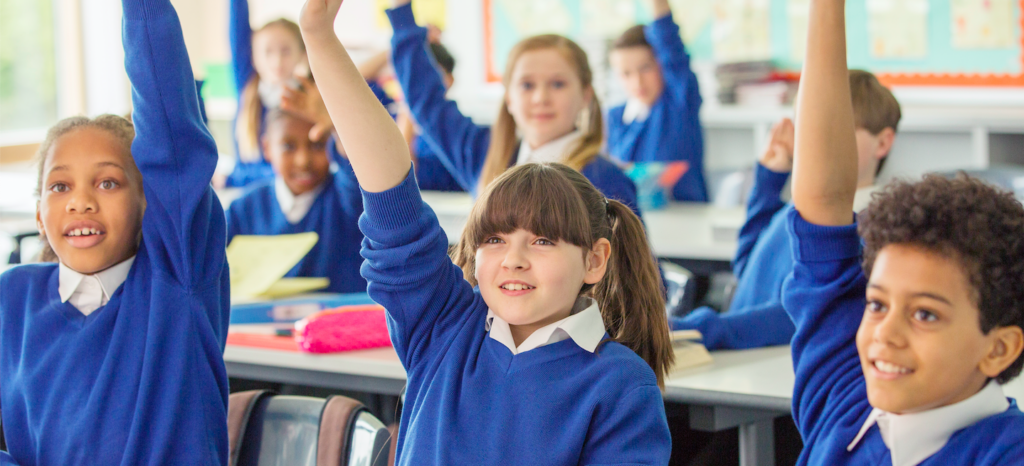Frequently Asked Questions

“In a virtual age, Catholic education must offer real experiences, with real things, preparing our students for the countercultural experience of a holy and joyful Christian life.”
Rev. James D. Conley, Bishop of Lincoln, “The Joy and Wonder of Catholic Education: Developing Authentically Catholic Schools”
What is Independent Catholic Education?
Families hoping to give their children a quality Catholic education have been finding creative ways to fill the gaps left by the lack of parochial schools, but they often struggle to secure the funds and facilities needed for long-term success. NICEA supports independent Catholic education efforts that provide evidence-based, academically robust, and faithfully Catholic instruction. These may include traditional brick-and-mortar schools, Classical academies, charter schools, Catechesis of the Good Shepherd Atrium programs, hybrid schools or homeschool cooperatives, and others. We especially prioritize programs that follow the example of Christ by welcoming and supporting students with disabilities.
What are the benefits of independent Catholic schools?
Independent Catholic schools help support the needs of Catholic families and relieve administrative pressures on Bishops by operating independently from their local diocese. Administrative independence ensures a school’s long-term financial stability without having to rely on fluctuating diocesan budgets for its survival. Independent operation of Catholic schools also gives families more direct input into decisions about their children’s academic and spiritual growth, freeing clergy to focus on the overall health and strength of the parishes within their Diocese.
How do we ensure schools’ success?
NICEA collaborates with thriving independent Catholic schools throughout the United States to identify best practices for long-term academic, administrative, and financial success. Our process encourages collaboration and knowledge sharing among the schools we support in order to build flourishing, financially sustainable, academically excellent, and authentically Catholic learning communities.
Shouldn’t Catholic schools be run by the Diocese?
Oversight of parochial schools can strain diocesan resources, as Catholic Bishops are saddled with a host of demands vying for their attention and financial support. These pressures have contributed to the disturbing trend of Catholic schools being consolidated or closed all over the country. The loss of vibrant school communities has been devastating for the affected neighborhoods and the Church as a whole. As faithful Catholics, we have a duty to support the proper education of all Catholic children in every community, regardless of whether there is a parochial school nearby. NICEA is working to rebuild Catholic communities in the wake of school closures and ensure that every child has access to an excellent, authentically Catholic education.
How will this help my struggling parish?
A vibrant Catholic school is the best way to engage families in their local parish community. Churches with a large number of families involved in a Catholic school, homeschool coop, or Atrium program benefit from a boost in Mass attendance, greater parishioner involvement, and increased Sunday giving.
Catholic education initiatives also directly support evangelization efforts by inviting even children of non-practicing parents into the joy and hope of a relationship with Christ through the Catholic Church. Students who develop an authentic relationship with Jesus Christ through the sacraments when they are young are far more likely to remain active parishioners as they enter adulthood, start their own families, or pursue other vocations.
Aren’t traditional education models most effective?
As parents seek alternatives to failing public schools, independent Catholic schools have a unique opportunity to meet the needs of families looking for more effective learning models paired with solid moral and spiritual formation. Enrollment in private schools is soaring along with homeschooling, and the number of independent Catholic learning communities has increased dramatically since pandemic lockdowns interrupted learning for many children. In addition, mounting evidence showing how the overuse of screens in negatively impacts learning has accelerated this trend.
The Catholic Church has a robust history of educational excellence and innovation. Evidence-based methods of instruction – such as those found in Classical or Montessori classrooms – have their roots in Catholic theology and the Imago Dei. These academic models are shown to develop robust critical thinking skills, creative problem-solving, and high-level leadership and organizational abilities, while also instilling a deep desire for truth, beauty, and goodness that leads children to an abiding love for Christ and his Church.
“For education to be complete, our knowledge of things must lead to the meaning behind those things and ultimately to their Creator. The goal of true education, then, is to be drawn into relationship with God who created the world and gave it meaning.”
– Rev. Robert Bolding, President-Rector of St. Mary’s High School, Phoenix, AZ

Want to learn more?
Can’t find the information you need? Contact us to learn more.